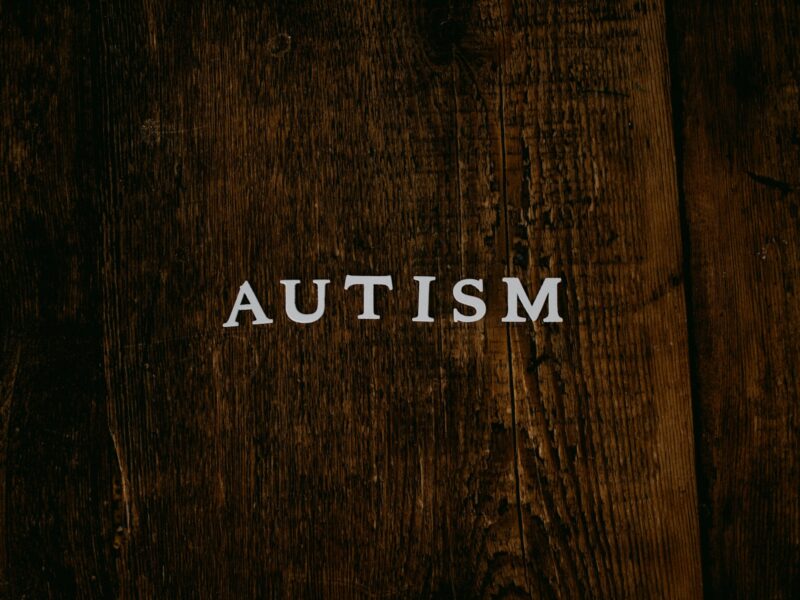Autism spectrum disorder (ASD) is a condition that impacts people in diverse manners, from struggles in communication to difficulties in social interactions. Living with ASD can be challenging for individuals and their families, but with the right support, resources, and understanding, people on the autism spectrum can lead fulfilling lives. This guide provides helpful information on available support, education, therapy services, and tools to assist with daily living for those with autism and their families.
Understanding Autism Spectrum Disorder (ASD)
Autism Spectrum Disorder (AS) includes conditions presenting difficulties in interactions and communication as well as repetitive behaviors. Although each individual with autism has an experience of the disorder, early detection and appropriate interventions can significantly enhance their quality of life.
Common Symptoms of ASD:
- Difficulty with communication and interaction
- Repetitive patterns of behavior
- Restricted interests
- Sensory sensitivities
- Challenges with adapting to changes in routine
Early Diagnosis and Intervention Resources
Support services for children with autism at a stage play a role in aiding their skill development and addressing the difficulties linked to ASD, offering valuable assistance to families seeking timely diagnosis and effective treatments.
Key Resources:
- Developmental Screening: Pediatricians and healthcare providers frequently conduct screenings to detect signs of autism at an early stage using tools such as the Modified Checklist for Autism in Toddlers (M CHAT).
- Early Intervention Programs: Federal and state initiatives, such as IDEA Part C, offer services like speech therapy and physical therapy to children under three years old through intervention programs.
- Autism Speaks 100-Day Kit: The Autism Speaks 100-Day Kit offers a resource for families following an autism diagnosis by outlining a plan for early interventions.
Education Resources for Children and Teens with Autism
Education is a fundamental aspect of life for individuals on the autism spectrum. Tailored learning environments that cater to the specific needs of children with ASD can help them thrive academically and socially.
Special Education Programs
Public schools in the U.S. are required to provide special education services through the Individualized Education Program (IEP). This legal document outlines the specific services a child will receive based on their unique needs. The 504 Plan also offers accommodations for students with disabilities, ensuring equal access to education.
Autism-Specific Schools and Learning Programs
There are schools and educational centers specifically tailored for students with autism, focusing on small class sizes, individualized teaching methods, and therapy integration. Examples include:
- The Autism Academy: Specializes in individualized education for children on the spectrum.
- Virtual Learning Platforms: Many platforms, like Time4Learning, offer curricula designed for students with special needs, including autism.
Therapy and Support for Individuals with Autism
Therapy plays a pivotal role in the development and improvement of life skills for individuals with ASD. Depending on the individual’s needs, a combination of therapeutic approaches can help manage symptoms and improve quality of life.
Applied Behavior Analysis (ABA) Therapy
ABA therapy is one of the most commonly used therapies for autism. It focuses on reinforcing positive behaviors while discouraging negative ones. ABA can be tailored to suit children, teens, and adults with ASD.
Speech and Occupational Therapy
- Speech Therapy: Supports individuals with language and communication challenges. Techniques include improving verbal communication, augmentative communication devices, and social skills training.
- Occupational Therapy: Focuses on enhancing motor skills, sensory processing, and daily living activities. This therapy helps individuals develop the skills they need to live more independently.
Social Skills Groups
Social skills groups provide structured environments where individuals with autism can practice and improve social interactions. These groups are led by trained therapists and aim to teach concepts like understanding social cues, turn-taking, and initiating conversations.
Adult Resources for Living with Autism
Adulthood presents new challenges for those on the spectrum, but a range of resources is available to help manage career, independent living, and ongoing personal development.
Employment Support for Adults with Autism
- Vocational Rehabilitation Services: State-run programs that assist individuals with disabilities, including autism, in finding and retaining employment. They provide job training, resume writing assistance, and job coaching.
- Autism at Work Programs: Many major companies, such as Microsoft and SAP, have autism-specific hiring programs aimed at recruiting and supporting neurodiverse individuals in the workplace.
Independent Living Support
- Supported Living Arrangements: These are programs that assist individuals in living independently while providing support services such as household management and personal care.
- Day Programs: Designed to provide structured activities during the day, day programs help individuals with autism build social connections, develop skills, and enjoy recreational activities.
Social and Recreational Activities for Adults
Organizations such as the Autism Society offer recreational programs specifically designed for adults with autism, providing opportunities to engage in hobbies, sports, and community events.
Autism Resources for Families
Families of individuals with autism need ongoing support to manage the unique challenges they face. Several organizations provide assistance, guidance, and resources to help families navigate the journey of raising a loved one on the spectrum.
Family Support Networks
- Parent Training Programs: These programs offer parents the tools and strategies needed to support their child’s development. The National Autism Association provides various training sessions for parents across the U.S.
- Siblings of Autism Programs: Dedicated to helping the siblings of children with autism navigate their own feelings and experiences, these programs offer support and counseling services.
Financial Support for Autism Treatment
- Supplemental Security Income (SSI): Families of children with disabilities, including autism, may qualify for SSI, a government program that provides monthly financial assistance.
- Grants and Scholarships: Several nonprofit organizations offer grants to help cover the cost of autism therapies, equipment, and other necessary treatments. The Autism Care Today (ACT) organization, for instance, offers grants for autism treatments not covered by insurance.
Mental Health Support for Individuals and Families
Mental health is a significant concern for individuals with autism and their families. Access to counseling, psychological support, and stress management tools is essential.
Counseling Services
Families can access counseling services through community mental health centers, private therapists, and autism-focused organizations like the Autism Society. Counseling helps individuals manage the emotional and psychological challenges of living with autism.
Respite Care for Caregivers
Respite care provides temporary relief to caregivers, allowing them time to recharge while ensuring their loved one is cared for. Many states offer respite care through Medicaid waiver programs, while nonprofit organizations also provide support.
Conclusion
Autism spectrum disorder is a complex condition, but with the right resources and support systems, individuals with autism can thrive. From early intervention programs to adult employment support, there is an abundance of tools available for individuals and families navigating the world of autism with Move Up ABA. By taking advantage of these resources, individuals on the autism spectrum can build fulfilling lives, and families can find the support they need to assist their loved ones.







